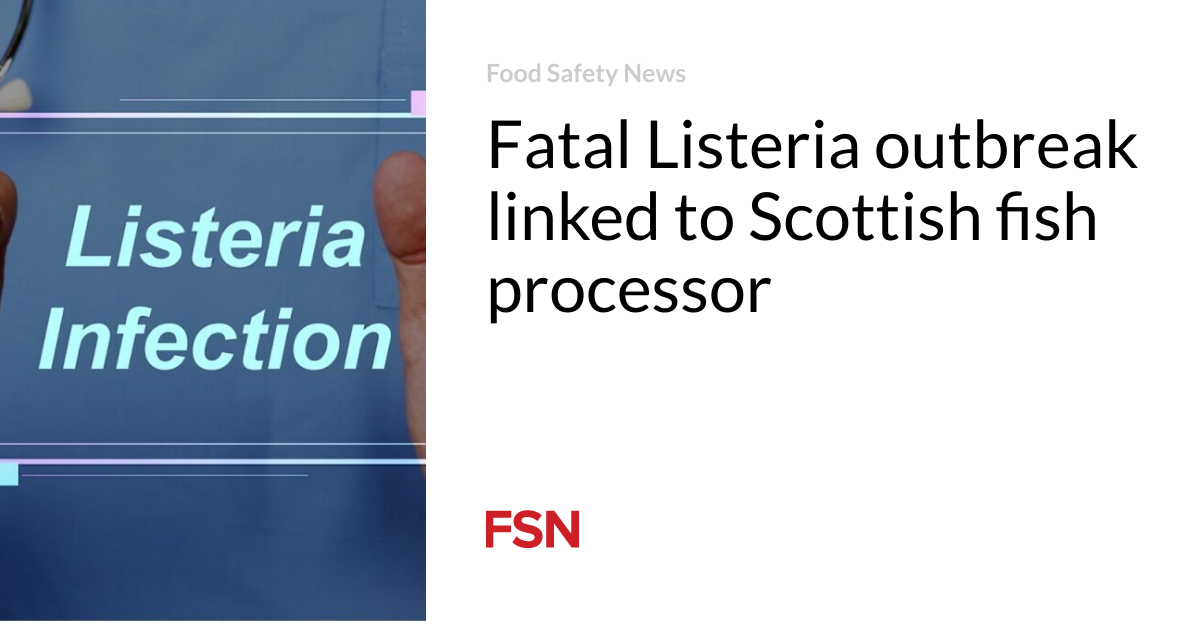
A deadly Listeria outbreak in the United Kingdom has been linked to one company but product testing has only found low levels of contamination.
Food Standards Scotland (FSS) and the Food Standards Agency (FSA) suspect the source of contamination to be a salmon-smoking processing factory in Scotland.
Food Standards Scotland wouldn’t name the company or answer questions about the incident from Food Safety News.
Instead, a spokesperson said: “This is an ongoing outbreak of Listeria monocytogenes and, as yet, no definitive source of contamination has been found. Investigations to determine the root cause continue. Investigations of any outbreaks of foodborne illness will comprise both patient questionnaires and sampling of products.
“Local authorities are responsible for working on mitigations with any implicated businesses, and FSS, alongside partners the UK Health Security Agency, Public Health Scotland, and the Food Standards Agency, have been involved in raising awareness of the outbreak with consumers, most recently with targeted messaging to vulnerable groups.”
There have been 14 confirmed Listeria monocytogenes cases in just under two years. At least 10 sick people are above 65 years old, and one was a pregnant woman.
Three people older than 65 have died and for two Listeria monocytogenes was a contributory cause of death. All cases had underlying health conditions.
Of the linked cases of listeriosis since October 2020, eight have been identified since January 2022. The majority of them reported eating ready-to-eat smoked fish.
Challenging incident
Products sold by the unnamed implicated company have all been within the maximum permitted level set in legislation.
The limit of 100 Colony Forming Units per gram (CFU/g) applies to foods placed on the market, during the product’s shelf-life.
Businesses that produce foods that can support the growth of Listeria are expected to show, to the satisfaction of authorities, that the product will not exceed 100 CFU/g throughout the shelf-life. Or, they must prove absence in 25 grams before the food has left their control.
“Food law is written on the basis of reducing risk as far as is reasonably practicable. It does not equate to an absence of risk, but an acceptance that residual risk will remain. Listeria is ubiquitous in the environment, and there is no stage in the production of cold smoked salmon that can eradicate the organism. Therefore, it is virtually impossible to reduce the risk to zero,” said Food Standards Scotland.
Controls are focused on good hygiene practices to minimize the risks of contamination and ensuring shelf life does not allow the pathogen to reach levels capable of causing illness. However, epidemiological data has shown that doses as low as 8 CFU/g can cause illness in vulnerable consumers susceptible to foodborne disease.
Given the product is compliant with microbiological regulatory limits yet still poses a significant risk to vulnerable consumers, authorities said it is critical that interventions ensure effective enforcement of food safety controls as well as public health messaging which enables people to understand the risks.
Advice to people over the age of 65, those who are pregnant or have weakened immune systems is that they should thoroughly cook ready-to-eat smoked fish before eating it. The warning covers chilled smoked fish products that would not normally be cooked at home before being eaten.
(To sign up for a free subscription to Food Safety News, click here.)
